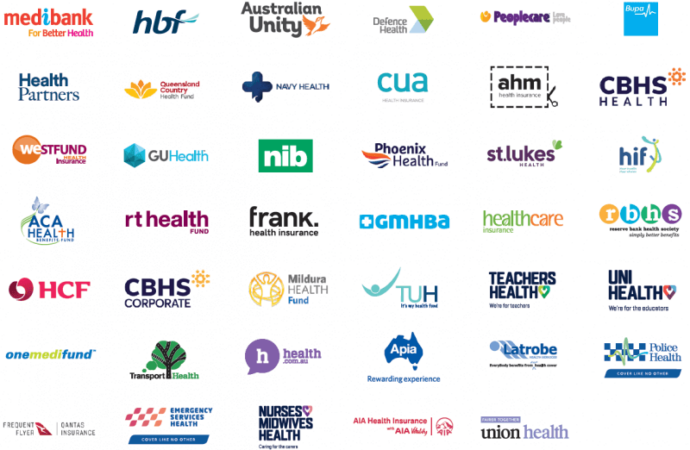
Is it required to have health insurance? This question is a common one, and the answer can vary depending on where you live. In many countries, having health insurance is mandatory, while in others, it’s a personal choice. However, regardless of legal requirements, health insurance can be a crucial financial and personal safeguard, offering peace of mind in the face of unexpected medical events.
This guide delves into the complexities of health insurance, examining the legal frameworks, financial considerations, access to healthcare, types of plans, and the role of insurance in managing risks and promoting healthy lifestyles. We’ll also explore emerging trends in the industry and speculate on the future of health insurance in a rapidly evolving healthcare landscape.
Legal Requirements and Mandates

The legal landscape surrounding health insurance varies significantly across the globe. Many countries have implemented mandates that require individuals to obtain health insurance coverage, often with penalties for non-compliance. These regulations aim to ensure broader access to healthcare and mitigate the financial burden associated with medical expenses.
Mandates and Penalties in Different Countries
Different countries have adopted diverse approaches to health insurance mandates. Here’s a glimpse into some prominent examples:
- United States: The Affordable Care Act (ACA) mandates that most individuals must have health insurance or pay a penalty. The penalty is typically assessed as a percentage of household income or a flat fee, whichever is higher. The ACA’s individual mandate was repealed in 2017, but the penalty for not having health insurance was set to zero in 2019. However, some states have their own individual mandates.
- Canada: Canada’s universal healthcare system provides coverage for essential medical services to all citizens and permanent residents. While there is no individual mandate to purchase private health insurance, Canadians can opt for supplemental private insurance for coverage beyond the public system.
- United Kingdom: The National Health Service (NHS) provides universal healthcare coverage to all UK residents. While there is no mandate to purchase private health insurance, many individuals opt for private coverage to access faster treatment or specialized services.
- Australia: Australia’s Medicare system provides universal healthcare coverage to all Australian citizens and permanent residents. However, the government also encourages individuals to purchase private health insurance to cover additional services like private hospitals and dental care.
Impact of Health Insurance Mandates
Health insurance mandates have a significant impact on individuals and the healthcare system. Here are some key considerations:
- Increased Access to Healthcare: Mandates can increase the number of individuals with health insurance, leading to improved access to essential medical services. This can be particularly beneficial for those with pre-existing conditions or low incomes, who might otherwise struggle to afford coverage.
- Reduced Financial Burden: Mandates can help mitigate the financial burden associated with unexpected medical expenses. By spreading the cost of healthcare across a larger pool of individuals, mandates can protect individuals from catastrophic financial losses.
- Potential for Healthier Population: Increased access to healthcare through mandates can lead to better preventative care and early detection of health issues, potentially contributing to a healthier population.
- Cost Considerations: While mandates can increase access to healthcare, they can also lead to higher premiums for individuals and potentially contribute to rising healthcare costs.
Financial Considerations
Health insurance is a significant financial decision, and understanding the costs and benefits is crucial. It involves weighing the potential financial burden of medical expenses against the cost of premiums and deductibles.
Comparing Costs and Benefits, Is it required to have health insurance
The cost of health insurance varies depending on factors such as age, location, coverage plan, and health status. Premiums are monthly payments made to maintain coverage, while deductibles are the amount you pay out-of-pocket before insurance kicks in.
- Having Health Insurance: The benefits of health insurance include protection against unexpected medical expenses, access to preventive care, and coverage for chronic conditions. It can provide financial stability and peace of mind, knowing that medical bills will be covered, even in emergencies.
- Not Having Health Insurance: The potential risks of not having health insurance include facing significant out-of-pocket expenses for medical care, delayed or forgone treatment due to financial constraints, and potential financial hardship.
Financial Implications of Medical Emergencies
Medical emergencies can occur unexpectedly and often come with substantial medical bills. Without health insurance, these costs can be overwhelming, potentially leading to debt, financial ruin, or even bankruptcy.
- Example: A car accident resulting in hospitalization and surgery could easily cost tens of thousands of dollars. Without health insurance, the patient would be responsible for the entire bill.
Health Insurance as a Financial Lifesaver
Health insurance can be a financial lifesaver in various scenarios, preventing financial hardship and ensuring access to necessary medical care.
- Chronic Conditions: For individuals with chronic conditions like diabetes or heart disease, health insurance provides coverage for ongoing treatment and medication, preventing exorbitant medical bills.
- Unexpected Illnesses: In cases of unexpected illnesses like cancer or a stroke, health insurance can cover the cost of diagnosis, treatment, and rehabilitation, minimizing financial strain.
- Preventive Care: Health insurance often covers preventive care services such as vaccinations, screenings, and check-ups, which can help detect health issues early and prevent more costly treatments later.
Access to Healthcare

Health insurance plays a crucial role in facilitating access to healthcare services. It acts as a financial safety net, enabling individuals to afford necessary medical treatments and procedures. By pooling resources and spreading risk, health insurance reduces the financial burden associated with healthcare, making it more accessible to a wider population.
Impact of Health Insurance on Healthcare Access
Health insurance significantly impacts the quality and availability of medical treatment. It provides individuals with access to a wider range of healthcare providers, including specialists and advanced medical technologies. Insured individuals are more likely to receive preventive care, leading to earlier detection and treatment of health issues, ultimately improving overall health outcomes.
Challenges Faced by Uninsured Individuals
Individuals without health insurance face significant challenges in accessing necessary healthcare. The lack of financial coverage can lead to delayed or forgone medical care, resulting in poorer health outcomes and higher overall healthcare costs.
- Financial Barriers: The cost of medical care, including doctor visits, prescriptions, and hospital stays, can be prohibitively expensive for uninsured individuals. They often have to make difficult choices between paying for healthcare and other essential needs, leading to financial strain and hardship.
- Access to Care: Many healthcare providers, especially specialists, may not accept uninsured patients due to the financial risks involved. This can limit the choice of providers and the availability of specialized care.
- Delayed or Forgone Care: The financial burden associated with healthcare can lead to delayed or forgone care, especially for non-urgent medical conditions. This can result in the worsening of health conditions, leading to more serious complications and higher healthcare costs in the long run.
- Health Disparities: Uninsured individuals are more likely to belong to low-income and minority groups, exacerbating existing health disparities. These groups often face barriers to healthcare access due to factors such as poverty, lack of education, and limited access to transportation.
Types of Health Insurance Plans

Navigating the world of health insurance can be confusing, with a variety of plan types available. Understanding the differences between these plans is crucial to making an informed decision that aligns with your individual needs and budget.
Individual Health Insurance Plans
Individual health insurance plans are purchased directly by individuals, often through a health insurance marketplace or broker. They provide coverage for medical expenses incurred by the policyholder.
- Key Features: Individual plans offer flexibility in choosing coverage options and providers. They are often customizable to meet specific needs, allowing individuals to select the level of coverage that best suits their health and financial situation.
- Benefits: Individuals have the freedom to select a plan that fits their unique circumstances. They can choose from a variety of providers and coverage options, ensuring a personalized experience.
- Coverage Options: These plans typically offer a range of coverage options, from basic essential health benefits to comprehensive plans with broader coverage. Individuals can select the level of coverage that best aligns with their needs and budget.
- Premiums: Premiums for individual plans are determined by factors such as age, health status, location, and chosen coverage level. They can vary significantly depending on the individual’s circumstances.
- Deductibles: Deductibles are the amount an individual must pay out-of-pocket before the insurance plan begins to cover medical expenses. Individual plans often have higher deductibles than employer-sponsored plans.
Employer-Sponsored Health Insurance Plans
Employer-sponsored health insurance plans are offered by employers to their employees. These plans are often more affordable than individual plans due to group purchasing power and employer contributions.
- Key Features: Employer-sponsored plans typically offer a variety of coverage options and provider networks. They often include features such as preventive care coverage and prescription drug benefits.
- Benefits: Employees enjoy lower premiums and greater coverage options compared to individual plans. These plans are also often more affordable than individual plans, making them a popular choice for employees.
- Coverage Options: Employer-sponsored plans offer a range of coverage options, including health maintenance organizations (HMOs), preferred provider organizations (PPOs), and point-of-service (POS) plans.
- Premiums: Premiums for employer-sponsored plans are typically shared between the employer and the employee. Employers often contribute a significant portion of the premium, making these plans more affordable for employees.
- Deductibles: Employer-sponsored plans generally have lower deductibles than individual plans, which can be a significant advantage for employees.
Government-Funded Health Insurance Plans
Government-funded health insurance plans are provided by the government to specific populations, such as low-income individuals, seniors, and individuals with disabilities. These plans are designed to provide affordable and accessible healthcare to those who may not have access to private insurance.
- Key Features: Government-funded plans offer subsidized premiums and often have lower deductibles and copayments. They are designed to be affordable and accessible to individuals with limited financial resources.
- Benefits: These plans provide essential healthcare coverage to individuals who may not be able to afford private insurance. They often offer a wide range of benefits, including preventive care, hospitalization, and prescription drug coverage.
- Coverage Options: Government-funded plans typically offer a standard set of benefits, with limited customization options. However, they provide essential healthcare coverage to eligible individuals.
- Premiums: Premiums for government-funded plans are often subsidized, making them affordable for low-income individuals. Some plans are entirely free, while others require a small monthly premium.
- Deductibles: Deductibles for government-funded plans are generally lower than those for individual or employer-sponsored plans, making healthcare more accessible for eligible individuals.
Health Insurance and Risk Management
Health insurance serves as a crucial risk management tool, offering financial protection against the unpredictable costs associated with illness or injury. By spreading the risk among a large pool of individuals, health insurance companies can provide financial assistance to those who need it most.
Financial Risk Mitigation
Health insurance plays a vital role in mitigating the financial risks associated with unexpected health events. Without health insurance, individuals could face substantial out-of-pocket expenses for medical care, potentially leading to financial hardship. This could include:
- High medical bills: Medical care can be extremely expensive, especially for serious illnesses or injuries. Health insurance helps cover these costs, reducing the financial burden on individuals.
- Lost income: Illness or injury can prevent individuals from working, resulting in lost income. Health insurance can help cover lost wages through disability benefits.
- Debt accumulation: Unpaid medical bills can lead to debt accumulation, impacting an individual’s credit score and overall financial well-being. Health insurance helps prevent this by covering a significant portion of medical costs.
Understanding Individual Health Risks
It is crucial to understand individual health risks to select appropriate insurance coverage. Factors that influence health risks include:
- Age: Older individuals generally have higher health risks due to increased susceptibility to chronic illnesses.
- Family history: A family history of certain diseases can increase an individual’s risk of developing those conditions.
- Lifestyle choices: Unhealthy lifestyle choices, such as smoking, excessive alcohol consumption, and lack of physical activity, can contribute to health risks.
- Pre-existing conditions: Individuals with pre-existing conditions may face higher premiums or limitations in coverage.
Health Insurance and Lifestyle Choices
Lifestyle choices significantly impact health insurance premiums and coverage. The link between lifestyle and health insurance is multifaceted, as healthy habits often translate into lower healthcare costs, influencing premium calculations and coverage options.
Health Insurance Premiums and Lifestyle Choices
Health insurance premiums are calculated based on various factors, including age, location, and health status. Lifestyle choices play a crucial role in determining health status, which, in turn, affects premiums.
- Smoking: Smokers generally face higher premiums compared to non-smokers. Smoking increases the risk of developing chronic diseases like lung cancer, heart disease, and stroke, leading to higher healthcare utilization and costs.
- Diet and Exercise: Maintaining a healthy diet and regular exercise can lower the risk of developing chronic diseases like diabetes, obesity, and heart disease. Individuals with healthier lifestyles tend to have lower premiums.
- Alcohol Consumption: Excessive alcohol consumption can increase the risk of liver disease, heart disease, and certain types of cancer. Individuals who engage in excessive alcohol consumption may face higher premiums.
The Future of Health Insurance
The health insurance landscape is constantly evolving, driven by technological advancements, changing demographics, and a growing emphasis on preventive care. These factors are shaping the future of health insurance, leading to a more personalized, data-driven, and technology-enabled approach to healthcare.
Emerging Trends in Health Insurance
Emerging trends are transforming the health insurance industry, impacting the way individuals access and pay for healthcare. These trends are driven by technological advancements and a growing focus on preventative care.
- Telemedicine: The rise of telemedicine is revolutionizing healthcare delivery, allowing patients to consult with doctors remotely via video conferencing or phone calls. This trend is particularly impactful for individuals in rural areas or with limited mobility, providing them with convenient access to healthcare services.
- Personalized Medicine: Personalized medicine utilizes genetic and lifestyle data to tailor healthcare treatments to individual needs. This approach promises more effective and efficient healthcare outcomes by targeting specific health risks and vulnerabilities.
- Artificial Intelligence (AI) and Machine Learning: AI and machine learning are being incorporated into health insurance to analyze vast amounts of data, identify trends, and predict future health risks. This allows insurers to personalize policies, offer more accurate pricing, and develop targeted prevention programs.
- Wearable Technology: Wearable devices like fitness trackers and smartwatches collect valuable data on individuals’ health, providing insights into their activity levels, sleep patterns, and vital signs. This data can be used by insurers to assess risk, provide personalized recommendations, and reward healthy behaviors.
Final Review
Ultimately, the decision of whether or not to have health insurance is a personal one, influenced by individual circumstances, financial capabilities, and health priorities. However, understanding the benefits, risks, and complexities of health insurance is essential for making informed decisions that best suit your needs and protect your well-being. By exploring the various aspects of health insurance, you can gain a deeper understanding of its role in securing your health and financial future.
FAQ Overview: Is It Required To Have Health Insurance
What are the benefits of having health insurance?
Health insurance provides financial protection against unexpected medical expenses, ensuring access to quality healthcare, and potentially reducing out-of-pocket costs. It can also offer preventative care services and promote healthy habits.
What are the different types of health insurance plans available?
There are various types of health insurance plans, including individual, employer-sponsored, and government-funded plans. Each plan type offers different coverage options, premiums, and deductibles, so it’s important to compare and choose a plan that best suits your needs and budget.
How does health insurance work?
Health insurance typically involves paying a monthly premium in exchange for coverage of medical expenses. When you need medical care, you submit a claim to your insurance provider, who then pays a portion of the costs, depending on your plan’s coverage.
What are some common health insurance terms?
Some common terms include deductible (the amount you pay out-of-pocket before your insurance kicks in), co-pay (a fixed amount you pay for each medical service), and co-insurance (a percentage of the medical cost you pay after the deductible).





